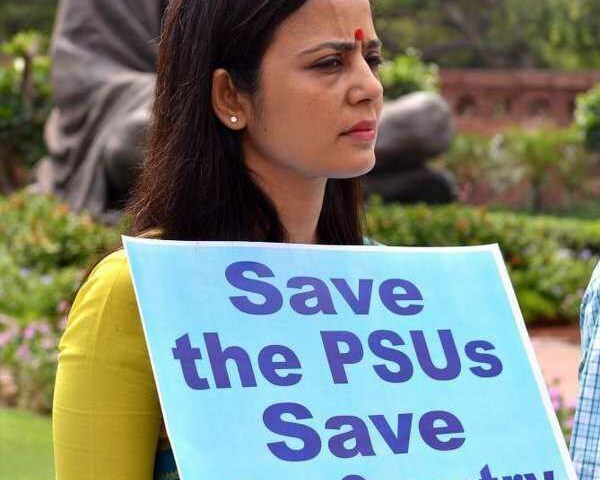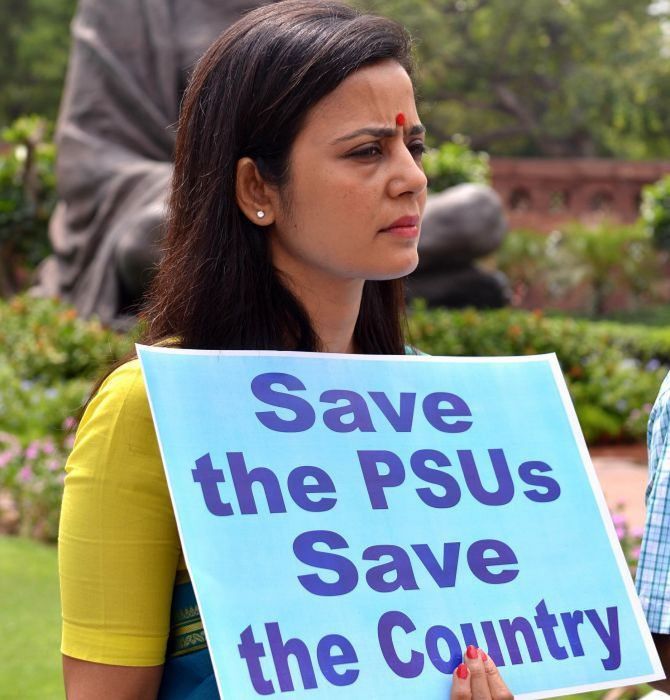The divestment process, however, will not be an easy affair as there are multiple stakeholders, including the employee unions, whose concerns will have to be addressed.
Stocks of listed public sector undertakings (PSUs) have had a good run at the bourses since the presentation of the Union Budget in February when the government reiterated its commitment to pare stake in select state-owned companies.
Since then, the S&P BSE PSU index has outperformed the S&P BSE Sensex by gaining over 20 per cent as compared to around 8 per cent rise in the frontline index during this period, ACE Equity data show.
The government plans to privatise two public sector banks (PSBs) and one general insurance company in the fiscal 2021-22 (FY22) and aims to raise Rs 1.75 trillion in the process.
Successful privatisation, Jan Dehn, head of research at Ashmore Investment Management that has nearly $100 billion worth of assets under management (AUM) believes, would ease the quasifiscal burden (not having to bail out loss making state companies), and bring in revenues at a time of a larger-than-expected fiscal deficit.
“There appears to have been a fundamental shift in thinking on divestment. Up until 2019, there was no mention of privatisation.
“Recent signs suggest that the Modi Administration is still quite positive about selling down BPCL and Air India in fiscal 2022 (FY22).
“The overall approach now appears to be to sell PSUs to a willing buyer with no strings attached. This is a big shift,” he says.
Bharat Petroleum Corporation (BPCL), Air India, Shipping Corporation of India (SCI), Container Corporation of India (CONCOR), IDBI Bank, BEML, Pawan Hans, Neelachal Ispat Nigam are some of the companies that are likely to see government cut its stake in, reports suggest.
That said, the divestment process, according to G Chokkalingam, founder and chief investment officer at Equinomics Research, will not be an easy affair as there are multiple stakeholders, including the employee unions, whose concerns will have to be addressed.
“Investors will have to be patient till the entire divestment process gets over.
“The returns will not be outsized in the short-term.
“Though operationally things will improve for the companies post divestment, synergies will take time to play out. As things stand, there is a good opportunity in select PSU stocks,” he says.
At the bourses, some of these stocks have already seen a good run since the past few weeks. BEML, for instance, has gained around 48 per cent since the presentation of the budget in February, while CONCOR, SCI and BPCL have surged between 12 per cent and 47 per cent.
Dhirendra Tiwari and Pankaj Chhaochharia of Antique Stock Broking remain positive PSUs and expect the divestment to lead to significant re-rating of the entire space as seen in 2002 when PSUs outperformed by around 70 per cent when then NDA government divested its stake in select state-owned companies.
State Bank of India (SBI), NTPC, Power Grid, HPCL, GAIL, Bharat Electronics and NMDC are the companies they remain positive on.
That said, the prized catch in the divestment ring, according to analysts is state-run refiner and marketer BPCL, which analysts feel stands a good chance of rerating as the divestment process for the company gathers momentum.
Analysts at CLSA expect potential buyers to reduce capex at BPCL and sell some of non-core assets (E&P, investments) to increase upstream cash and service interest cost.
“Our expectation on reserve price is around Rs 500/share and this includes a potential dividend of Rs 50-60/share out of cash proceeds from sale of its stake in Numaligarh refinery and BPCL trust share of 7.33 per cent.
“At this price, government stake should be worth $6.9 billion and total payout to acquirer would be between $6.9 billion to $10.3 billion, depending on what is the response to open offer,” wrote Anubhav Aggarwal, Krati Sankhlecha and Sayantan Maji of CLSA in a March 16 note.
Source: Read Full Article


